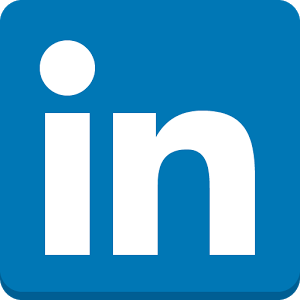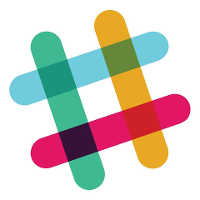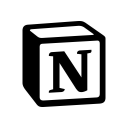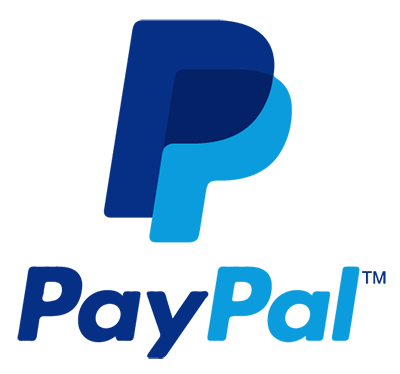How I Started A $15K/Month Market Research Agency With Just $400
Hello! Who are you and what business did you start?
Hello, my name is Abhishek Kumar, and I am the founder of Deep Research. We are a boutique market research agency that helps companies gather customer insights and use them to guide their product and growth strategy.
Our clients are early-stage startups in the idea validation phase or businesses that have paying customers and are looking for their next growth opportunities.
Depending on the needs of our clients, we spend 4-8 weeks speaking to their customers and helping them figure out their ideal buyer personas, the messaging that resonates with their buyer personas that can be used end to end from their website to their email marketing campaigns, how to position themselves in the market against competitors, feature recommendations based on the most lucrative problems, and marketing recommendations that their buyers would respond to.
We launched in January 2023 and are making on average $10,000 monthly in revenues. That number has consistently grown over the past 10 months and we had our best revenue last month ($15,000), mainly as a result of continuously evolving our services as per the needs of our customers and providing more value - that has helped us increase prices twice this year.
Picture from a workshop I ran with my friend Lex Roman recently

What's your backstory and how did you come up with the idea?
I’m originally from India and in December of 2019 I came to the UK to work for an Indian IT firm. Pretty soon COVID hit and we were all locked down in our homes. So, I was in a new country, barely knew anyone, and was alone in the pandemic. Like most people, I spent an ungodly amount of my time on the internet - mostly Twitter in my case.
I’ve always read business stories - in autobiographies and magazines, but Twitter opened another door for me. Millionaires sharing their lessons in real-time and building in public? It’s a hell of a drug LOL.
After a few months, I started seeing a bunch of up-and-coming podcasters hosting very successful business people, and I thought I should do my own to build my network. And it would divert my mind from the chilling British winters and loneliness.
So, I started my podcast where I would invite entrepreneurs and talk about their businesses.
How did I get them?
I had built a TikTok page repurposing content from YouTube that had 130k+ followers. It was not much, but in the summer of 2020, a business page with tens of thousands of followers on TikTok was a rarity.
My guests had tens of thousands of followers on other social platforms but no distribution on TikTok. I don't think they only came because of TikTok, but it helped my pitch stand out.
Here are a few successful pitches I made.
Sent this message to Jesse Cole - the owner of the Savannah Bananas baseball team:

Sent this message to Austen Allred - the founder of Lambda School, now renamed to BloomTech:

Sent this message to Dickie Bush, founder of Ship30for30:

Good cold messages have 3 ingredients:
Timing: Austen had just tweeted about an off day so I reached out to him on Twitter. Dickie had tweeted about being a guest on podcasts and I reached out to him within 24 hours.
Leverage: TikTok was a platform none of my guests had explored and I had a decent audience.
Email/DM Copy: I’ve seen long emails work. I’ve seen 1 liner emails work. And I’ve seen my pitches work. So I don't have a strong opinion on email/DM size. No fluff is the only rule I’d suggest you follow. As long as the email is no fluff, it can be decently long and still work.
I ran the podcast for a year, along with a newsletter that I launched shortly after the podcast. It never blew up but helped me build a decent network and over time I started picking freelance opportunities.
Initially, I’d do anything. I’ve dropshipped t-shirts from China to the USA, built and sold a few pages on Instagram, helped businesses repurpose content, helped an entrepreneur write an ebook (which never came out), written code, and ran customer research.
Over time, I realized that I enjoyed research more than anything. It was also the best part about podcasting. I loved creating a hit list of dream guests, stalking them on social media for weeks, and then dropping them emails to invite them to the podcast. I also loved reading about their background and asking questions they'd not been asked before. Felt like a win. What I hated was all the post-interview stuff - editing and posting.
So last year I started to clean my plate and kill side projects that I no longer enjoyed or were making little to no money. I could come back to them later but now I needed something full-time that would help me quit my day job.
So I’m removing tasks off my plate, increasingly thinking of research, and one fine night I see a post for a customer interview gig. One thing led to another and I started working with Sophia at Ignore No More agency. Almost 2 years later, they’re still a client. Working with her, I realized there’s a huge market for research for startups - not a billion-dollar market - but enough for me to start an agency of my own.
It still took a full year for me to quit my job, but I eventually did it. At the time I had 0 clients outside of Ignore No More, but they were a constant source of revenue. I must add that Sophia became a mentor to me and helped me get my business off the ground. I had seen her build her agency and I could reach out to her anytime for advice. She also changed my mind about mentors. I’ve easily read 100+ biographies and 1,000+ articles on business. Nothing comes close to someone you can reach out to any given day and ask for a piece of specific advice.
Need an NDA template? Message Sophia.
Need advice on pricing? Ask Sophia.
Are cold DMs not working? She sent her template.
Financially, it helped that I moved to India for 6 months to reduce my burn. I’m back in the UK now, but the first few months were all about not dying.
The only validation of your idea is a customer’s money in the bank.
Take us through the process of building the first version of your product.
When I quit my job in January of 2023, I was starting from scratch. I had to build a website, think about the business from the agency perspective, 5X my prices, and think of the entire sales process.
I started with the website. A friend suggested the Umso website builder. They had a good agency template. Spent a week playing with it and created a basic website. To be honest, I think the website needs an upgrade now. We’ve had more wins and understand the market much better than when I made it.

As a freelancer, I used all templates suggested by the companies I worked with. But as an agency, we needed our reporting format and customers had to be convinced that it would work. It helped that I had spent 2 years working with startups. I knew what they needed and we focused on them.
All our reports are no fluff, actionable advice, coming directly from their users. We stick with our customers during the execution phase too. A market research report is just a PDF with words if those insights are not executed. We love working with a small group of high-quality clients. We’ve never run mass cold email campaigns to acquire clients. That’s not our DNA.
For sales, we went all in on communities. Previously I had worked with a creator on creator-led businesses and had seen the power of well-curated paid communities. Back in 2020, I had joined On Deck’s Podcasting Fellowship. A lot of fellow members were business owners getting into podcasting. When I shared my story of building the TikTok page, I got 2 clients the same week. I wasn't even selling a service. They reached out to me and convinced me to work for them. Both were short-term gigs but paid for my fellowship. In good communities, you’ll make money even without selling.
Our first customer outside of Sophia came from the Trends community by Dru Riley. Since then we’ve had customers from MicroConf, Indie Worldwide, Ramen Club, and Lenny’s Newsletter. We continue to invest a lot of time in these communities and they have been our biggest sales channels.
In the beginning, we spent $400 to start the business. That cost has grown over time as we’ve added more paid communities and hired employees to run parts of the business. But until we got our first customer as an agency we had not spent more than $400 in total.
Describe the process of launching the business.
There was never a big launch. I just started spending a lot of time in communities: Answering questions on user research and connecting with other founders. Some communities have daily standups and weekly masterminds. I’d join all calls, letting people know what I do. After about a month of doing that, we started to see inbound interest. I like to say that Deep Research gets all of its clients through content. It’s just that we create that content for one person or a very small group - at a time.
I used to freelance for an entrepreneur who, to this day, writes handwritten letters to 100s of people each year. That’s how he had built connections with Tim Ferriss and Seth Godin. I learned a lot about networking with him. It’s not about going wide but going deep. I suggest you read Mastermind Dinners by Jayson Gaignard and adapt it to your context.
Because we were very scrappy and are to this day, it helps when we’re consulting clients who are in the same phase. We know what it's like to have 8 weeks of runway and little resources and then make things work because we trust the process - if you understand your customers well, and build what they need, the money will come.
Business is very complex so I don't believe there's a one-size-fits-all advice for entrepreneurs, but I deeply believe, that investing time and resources in understanding your customers better always helps.
Find 2-3 people who’ve built a business similar to yours and build a strong relationship with them.
Since launch, what has worked to attract and retain customers?
It’s cliche, but it's doing good work. People talk, especially in small communities. We regularly hop on calls where our newest clients have been referred to us by our previous clients. We’ve also added more services to keep our existing clients for longer durations. Let’s break down both of these for you.
Getting new clients
I hop on 4-5 founder coffee chats every single week. I’m constantly keeping an eye on founders working on interesting ideas and firing off lots of cold emails.
Here are all the flows through which I’ve networked with people.
- Read interesting intros in communities and DM/Email founders
- Read a Twitter thread and DM the writer
- Read articles on Business Insider, Inc. and Starter Story (recent addition) and email founders
- Read about small businesses through newsletters and email their founders
In total, I wrote an email or sent a DM to 400+ founders this year alone, hopped on 50+ calls, and have made many friends. I’m horrible at following up, which I’m working on but it’s not something I’m proud of at the moment. But in short, that’s how I get clients. I’m always skeptical that this strategy will fall on its face someday but it has worked till now.
We are starting to try newsletter ads but these efforts are too small to have meaningful results. Maybe next quarter I’ll have a story to tell.
Adding more services
Let me convince you why it's important to speak to your users by sharing my own story.
Back in 2020-2021, when I first started helping founders with user research, I used to run customer interview calls for them. Now running calls is a commoditized service - can't charge a premium for it. I made $400 per project and spoke to 10-15 people for each client. My only deliverable was, I’ll help you find which features your customers are looking for.
That price had gone up to $700 per client over time but it was still too low for me to quit my job. I did something really stupid, which is quit my job first then think about how I can charge more. I got lucky because it worked, but I advise all my customers to test all hypotheses. Sometimes we’re bad at taking our advice.
Anyway, back to January 2023, I’m thinking, how do I charge more? I started listening to lots of founder interviews about their early days of finding product market fit. The insight I got was that no one buys market research. People have business bottlenecks, some of which can be resolved by market research. And that’s what they buy - business solutions.
Research is a tool that helps you get there. So I mapped everything that can be resolved by market research and we created a custom reporting template that we use for all of our clients currently. Every Deep Research report has
- Buyer Personas and Buyer Journey
- A Product Messaging Guide
- A Product Positioning Guide
- Feature Recommendations
- Marketing Recommendations
All of these recommendations can be directly fed into the product and the marketing strategy of our clients. There’s a lot more that goes into the report but that is out of scope of this interview so I’ll leave it at this stage.
This helped us be able to confidently go into the market and pitch business solutions vs customer interview solutions.
We started making $4,000-6,000 per client.
Now, about 3 months back, I’m thinking … how do we charge more?
Working with our clients … we realized that we gave them everything that they could do in terms of product improvement and marketing opportunities, but someone still needs to implement them. Moreover, the best companies cannot use market research as a one-off investment. They are constantly testing new ideas and need a research partner they can rely on.
So we added more services (UI/UX recommendations, GTM strategy, and more) and pitched a $10k package to an existing client.
Within 2 weeks, we had money in the bank and a really happy customer. We had worked with them after they'd been ripped off by 2 other research agencies and we delivered a stellar report. It helped us build a lot of trust. Proof of work is the best testimonial you can get, I guess.
We’re constantly evolving our services to become a valuable partner to all of our existing and future clients and keeping in touch with them regularly has helped us grow as a business.
How are you doing today and what does the future look like?
Deep Research is profitable today and it has helped us expand our services and team (now 3 people) without raising any money. We spend about $150 per month to acquire customers. It’s a small financial investment but a lot of time investment. In the next months, we’ll start increasing the customer acquisition budget by 15X to try other channels - newsletter ads and podcast appearances.
From now on, we are looking forward to more content opportunities where we can share our work. For a long time, we’ve been talking about it in closed communities but over the next year, we’re going to invest time to share our story outside of these communities as well. We have a lot of conviction in our product and want to attract founders who understand the need for a second brain.
Over the long term, we want to become the go-to place for startup strategies. I love reading stories on Business Insider, Inc. and Forbes. They are great for the what. But every entrepreneur figures out the how on their own - in the context of their own business.
Deep Research wants to be the home of the how. It cannot be a template you can buy - we don't believe in one-size-fits-all solutions - but a 1:1 service that understands the context of your business, and the needs of your market and then builds a solution that fits your needs. So you read those magazines for ideas and come to us for execution. If this sounds attractive to you and want a partner to execute an idea you recently found worth trying, I’d be keen to hear from you.
Good hires are worth the money. It took me a long time to convince myself to pay for premium talent, but they're worth the money.
Through starting the business, have you learned anything particularly helpful or advantageous?
Mentors are really important. And those that are only a few steps ahead of you. I remember the founders of Veed telling me this a year back at a Ramen Club meetup in London. I didn't get it then but I get it now.
No magazine feature story has helped me make another $1,000 yet. They’re good for consumption but adamant to execute. There’s a lot of nuance to everything in business. Find 2-3 people who’ve built a business similar to yours and build a strong relationship with them - like you can share your screen and take them through your entire email and they stick around to help.
Good hires are worth the money. My VA and my research hires are amazing. They’ve been in the space for 10+ years and it shows. They immediately helped me improve my results and the entire business. We would never be able to grow and create premium services without them. It took me a long time to convince myself to pay for premium talent, but they're worth the money.
What platform/tools do you use for your business?
- Documentation: Notion and Adobe PDF
- Communities: Slack and Circle
- Transcription: Descript
- Contracts: Docusign
- Delegation and Client communication: Email and Loom
- Calendar: Calendly
- Website: Umso
What have been the most influential books, podcasts, or other resources?
Founders Podcast by David Senra is my favorite. That’s also where I get my business biography recommendations. I read Shoe Maker most recently and am halfway through Four Seasons. I also love Acquired Podcast. I read a lot so feel free to email me about book/magazine/newsletter suggestions.
My best ideas come from reading unrelated things - it’s not strategic, I just love reading random stuff. Recently I have been reading reports of value investors who cover small stocks - companies worth $20-100M. By next quarter, you bet, a bunch of them will be receiving Deep Research pitches.
Shoe Dog by Phil Knight is my favorite book. Why? Forget about valuation and profits. That man won in life. Built a business he still loves and kept his family together through it all. It’s an impossible story … but a man can dream.
Advice for other entrepreneurs who want to get started or are just starting out?
Just start. None of our clients have ever come through our website. Sure an agency needs one. But it does not have to be extremely sophisticated. I made my first contract, NDA, and invoice after a client asked for one. I speak to a ton of founders who are still stuck in these or worse yet, wondering how they'll get their 100th customer before getting their first. All of that is fake work - mental gymnastics.
The only validation of your idea is a customer’s money in the bank. Think about the shortest path to getting there. For me, it was a 2 page website + lots of Zoom calls. Everything happened after I got my $4,000 invoice paid.
Are you looking to hire for certain positions right now?
We hired a researcher just 3 weeks back so we’re good for now. However, back when On Deck launched its first job boards for their startups, they had open positions that said - build your job. It was an open position that anyone could apply for if they felt they could add value to the company.
So feel free to build your job at Deep Research. If there’s no immediate need, I’ll keep your email to reach out a couple of quarters from now.
Where can we go to learn more?
- Website
- Founder Coffee Chat - this is the best way to connect. I keep it casual and love learning from other businesses
If you have any questions or comments, drop a comment below!

Download the report and join our email newsletter packed with business ideas and money-making opportunities, backed by real-life case studies.

Download the report and join our email newsletter packed with business ideas and money-making opportunities, backed by real-life case studies.

Download the report and join our email newsletter packed with business ideas and money-making opportunities, backed by real-life case studies.

Download the report and join our email newsletter packed with business ideas and money-making opportunities, backed by real-life case studies.

Download the report and join our email newsletter packed with business ideas and money-making opportunities, backed by real-life case studies.

Download the report and join our email newsletter packed with business ideas and money-making opportunities, backed by real-life case studies.

Download the report and join our email newsletter packed with business ideas and money-making opportunities, backed by real-life case studies.

Download the report and join our email newsletter packed with business ideas and money-making opportunities, backed by real-life case studies.









